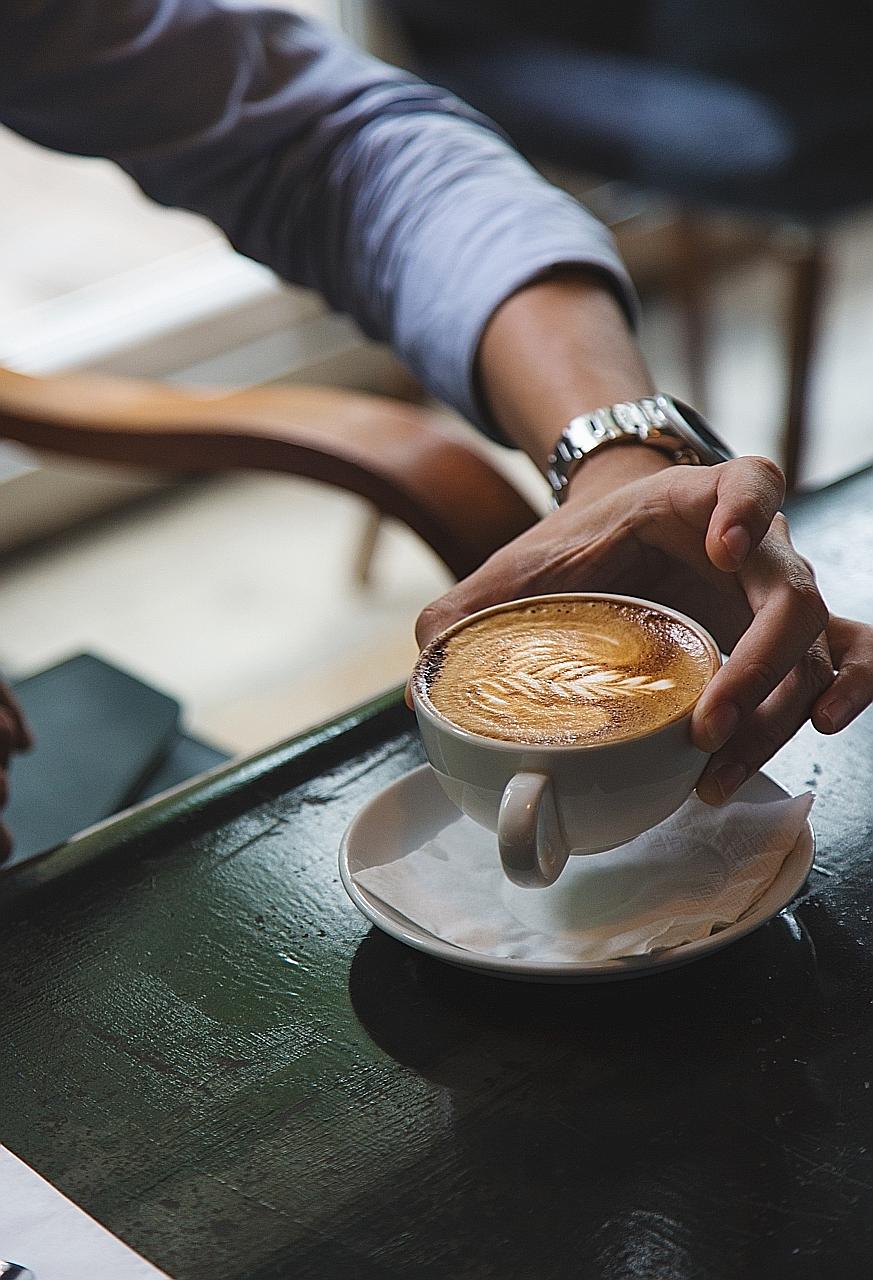That cup of joe: Friend or foe?
Sign up now: Get ST's newsletters delivered to your inbox

Drink coffee in moderation - three to five cups or up to 400mg of caffeine - to reap its benefits.
PHOTO: SINGAPORE COFFEE FESTIVAL
NEW YORK • Coffee is ingrained in many people's daily routine. Just the right amount can improve one's mood, but too much may make one feel anxious and jittery.
Here are the truths after putting the beverage through the sieve.
IS COFFEE GOOD FOR YOU?
Yes. In moderation, coffee seems to be good for most people - that is three to five cups or up to 400mg of caffeine.
"The evidence is pretty consistent that coffee is associated with a lower risk of mortality," said Ms Erikka Loftfield, a research fellow at the National Cancer Institute.
For years, coffee was believed to be a possible carcinogen, but the 2015 Dietary Guidelines helped to change perception. For the first time, moderate coffee drinking was included as part of a healthy diet.
A 2017 review on coffee consumption and human health in the British Medical Journal found that most of the time, coffee was associated with a benefit rather than a harm.
The potential benefit from coffee might be from polyphenols, which are plant compounds that have antioxidant properties, according to Dr Giuseppe Grosso, an assistant professor in human nutrition at the University of Catania in Italy.
However, coffee is not for everyone. There are concerns about overconsumption. This is especially true for expecting mothers because the safety of caffeine during pregnancy is unclear.
DOES THE WAY COFFEE IS PREPARED MATTER?
Yes. Do you prefer a dark or light roast? Course grinding or fine? Arabica or robusta?
"All these different aspects affect not only the taste, but also the compounds within the coffee," said Mr Neal Freedman, a senior investigator with the National Cancer Institute. "But it's not clear at all how these different levels of compounds may be related to health."
Roasting, for example, reduces the amount of chlorogenic acids, but other antioxidant compounds are formed. Espresso has the highest concentration of many compounds because it has less water than drip coffee.
A study in Jama Internal Medicine examined the coffee habits of nearly 500,000 people in Britain and found that it did not matter if they drank one cup or chain-drank eight - regular or decaffeinated - or whether they were fast metabolisers of coffee or slow.
They were linked to a lower risk of death from all causes, except with instant coffee, the evidence was weaker.
The way you prepare your cup of joe may influence your cholesterol levels too.
"The one coffee we know not suitable to be drinking is the boiled coffee," said Assistant Professor Marilyn Cornelis at the Northwestern University Feinberg School of Medicine.
Examples of this include the plunge-happy French press, Scandinavian coffee or Greek and Turkish coffee - the kind commonly consumed in the Middle East.
The oil in boiled coffee has cafestol and kahweol, compounds called diterpenes. They are shown to raise LDL, the bad cholesterol, and slightly lower HDL, which is known as the good kind.
"If you filter the coffee, then it's no issue at all," said Professor Rob van Dam from the Saw Swee Hock School of Public Health at the National University of Singapore.
"For people with cholesterol issues, it's better to switch to other types of coffee."
DO ALL KINDS OF COFFEE HAVE THE SAME AMOUNT OF CAFFEINE?
No. Espresso has the highest concentration of caffeine, packing about 70mg into a one-ounce shot, but is consumed in less quantities. By comparison, a typical 12-ounce serving of drip coffee has 200mg of caffeine, more than instant coffee's 140mg.
Brewed decaffeinated coffee has caffeine too - 8mg - which can add up.
IS COFFEE ADDICTIVE?
Evidence suggests there can be a reliance on the drink and tolerance builds up over time. Withdrawal symptoms include a headache, fatigue, irritability, difficulty concentrating and depressed mood.
Indeed, caffeine is a psychoactive drug and coffee is its biggest dietary source. About half an hour after sipping a cup of joe, the caffeine kicks in and is quickly absorbed.
Blood vessels constrict. Blood pressure increases.
A moderate amount of caffeine can wake you up, boost your mood, energy, alertness, concentration and even athletic performance.
On average, it takes four to six hours to metabolise half the caffeine.
For those knocking back more than 400mg of caffeine a day, there is not enough evidence to assess the safety, according to the dietary guidelines.
Higher doses can lead to caffeine intoxication, with its shakiness, nervousness and irregular heartbeat.
Caffeine is also linked to delaying the time it takes to fall asleep, how long you stay there and the reported quality of that shut eye.
NYTIMES


